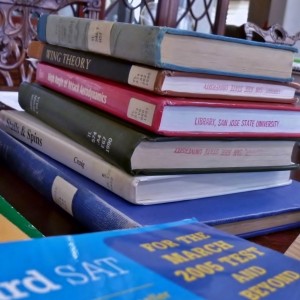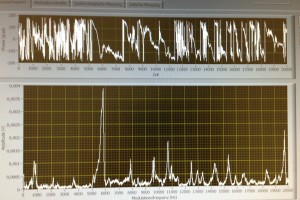
Four years after I had begun my first incursion into the research world, I saw myself as a somewhat seasoned student researcher. At the very least, I had some confidence in my research and experimental abilities. But it was not until this year that I realized that through all the lofty jargon and fancy terminology I had been picking up along the way, there was something I had been urgently lacking: the basics.
One of the eye-opening incidents happened just this past summer, when my supervisor asked me to explain to him an optical gas sensing technique known as “2f wavelength modulation spectroscopy.” That day, I had been trying to calibrate a laser that we were planning on using for a methane sensor and had been experiencing some problems. As my supervisor always does when he troubleshoots, he wanted to start from the basics. After all, if we didn’t know how every bit of the sensor worked, how could we figure out the possible sources of problems? But usually he had been the one doing all the explaining, so I was surprised when he suddenly asked me: “Stacey, what is the signal that we’re measuring anyway?”

I had spent the last year working on optical sensing with lasers using techniques such as these, so I was a little miffed that he thought I didn’t know about this technique. I whipped out a cool-sounding answer I had read during the school year when learning about how AM and FM radio work, since the idea is similar. “The signals are contained in side bands of the frequency domain,” I answered confidently.
But much to my surprise, he simply waved off my explanation with a scoff. “No, come on, not the side bands, that’s just textbook stuff.”
I was even more confused. Textbook stuff? But what I had said wasn’t technically incorrect, was it? I tried rephrasing what I had said, but he told me he wanted something simpler, something more intuitive—what was really going on with the laser? Could I tell him about the physical measurement we were doing?
I was dumbstruck. I realized that I actually had no idea what we were doing. I didn’t know what we had been measuring at all. Eventually he caved in and explained the process to me, but I didn’t have the words to explain how embarrassed I was that I couldn’t answer what seemed like a very simple question.
It hit me really hard that day that even though I could operate the sensors for all practical purposes, I had little idea about how to really develop them and solve the associated problems. I thought I did—I did very well in performing the tasks my supervisors and professors had outlined for me—but that didn’t mean I was a good researcher. What I hadn’t realized was that reading only high-level text about all the complicated jargon wasn’t really enough—they only gave me the words to cover my ignorance. But sooner or later, the fact that I had hadn’t covered my bases well would reveal itself.
As far as I see it, this is a compelling reason to study theory—anything could be useful, even if you already know the specific field you want to work in. So if you want to get started in research and haven’t gotten into the deep end yet, don’t be afraid to take the time and build up the basics!
– Stacey Huang, Engineering Correspondent

